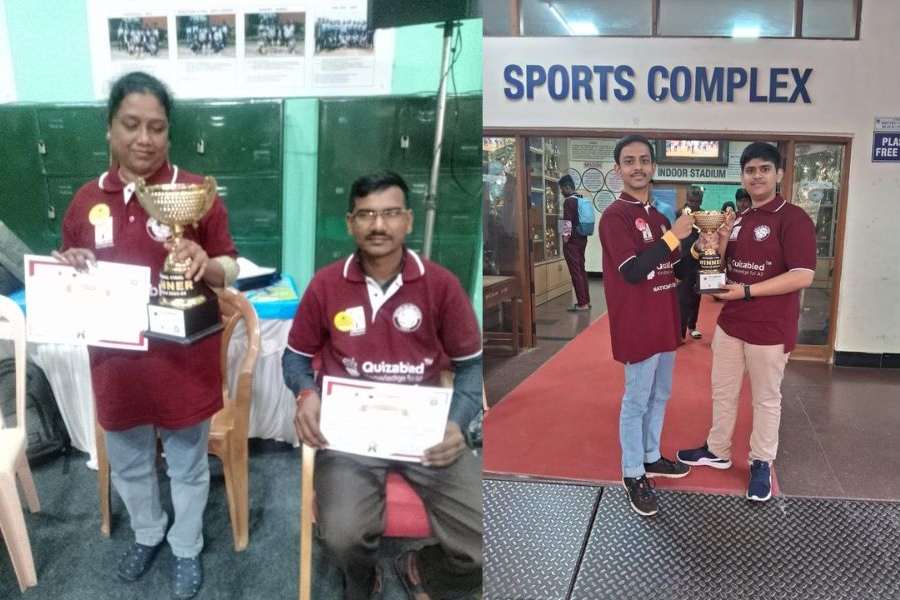A 19-year-old who can barely see manages to stitch hand gloves and earn a living for her mother and herself.
Sipra Singha listens to her teachers read out books to her. This has helped her win a quiz competition in Bangalore.
She competed against contestants from nine other states, all visually impaired like her.
Quizabled, organised by a Bangalore-based NGO, Seva in Action, in December was a competition to help differently abled students discover their “talents and intellectual abilities”.
Sipra and her friend Shibnath Shaw, 17, were winners of the quiz in the visual impairment segment.
“The prints on the books are so small that it becomes difficult for me to read them on my own. I memorise facts or figures after listening to someone who would read them out to me,” said Sipra.
Two other Kolkata students — Arpan Guha, 17, and Soutrik Ray, 17 — topped in the hearing impairment category.
The 9th edition of the quiz had four categories: visual impairment, hearing impairment, cerebral palsy and intellectual disability, and autism spectrum disorder.
It was for the first time that a regional round was held in Bengal. The winners from different cities went to Bangalore to participate in the finals in December.
Often individuals with disabilities and their families underestimate their abilities because they do not find the proper platform to showcase what they are capable of.
The society they live in treats them as “outsiders” and succeeds in isolating them. Many treat them with sympathy instead of being sensitive to their needs, said a member of Seva in Action.
“Such events are a huge confidence booster for our children. We still come across sports, dance and music events, but not many quizzes,” said Pubali Guha, mother of Arpan and a member of Anwesha Kolkata, a parents’ organisation that works with children with hearing impairment.
For Arpan and Soutrik, who go to mainstream schools, it was their first trip outside the city for a competition.
It is a validation of their abilities, said Guha.
An event for those with disabilities has to be thoughtfully and sensitively designed so they do not feel excluded or lost.
The programme manager of Seva in Action, Souvik Chowdhury, said that for those with hearing impairment, the questions were asked pictorially. Those with speech difficulty were given cards to select the right option.
Questions were asked in English and the mother tongue of the participant.
“Such events help break stereotypes that exist about people with disabilities,” said Ruma Banerjee, vice-chairperson, Seva in Action.
“We have children from diverse age groups and we started as a group of parents with children with hearing impairment who shared their experiences with other parents. It helped younger parents cope with the situation better,” said Snigdha Sarkar, president, Anwesha Kolkata.
For Sipra, a student at Bonsai Prochesta in Konnagar, this is her first trophy. “I cannot read clearly what is written on the trophy but I felt proud to carry it,” she said.
